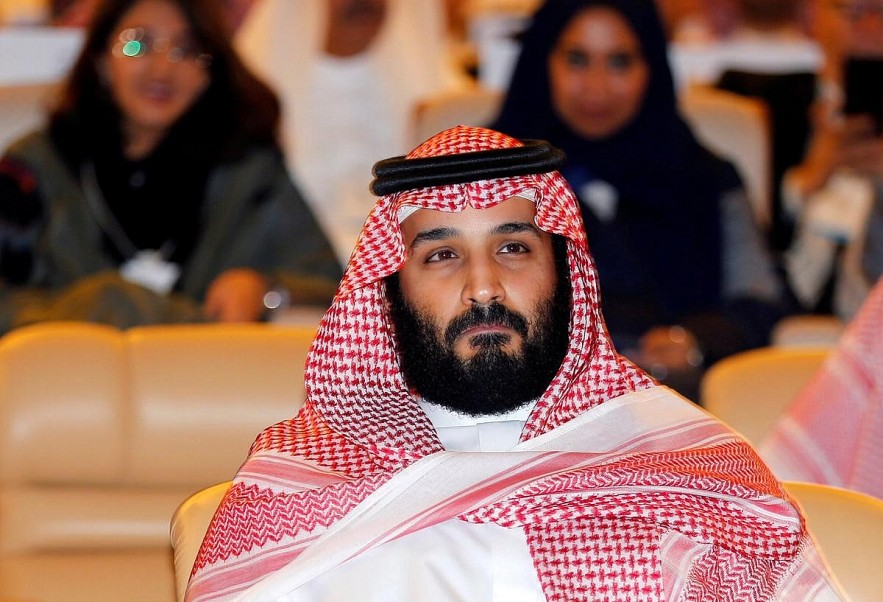Saudi Crown Prince's New Delhi Visit to Help Boost Energy Ties Ahead of India's G20 Presidency
 |
| Saudi crown prince Mohammed bin Salman. File | Photo Credit: Reuters |
Salman is expected to visit India as he was invited by External Affairs Minister S Jaishankar last month. The Saudi Crown Prince and the Indian Prime Minister are expected to discuss deepening their existing partnership in the areas of energy, investment and security.
The Crown Prince has emerged as an undisputed leader in the Saudi Kingdom. He initiated many reforms when the country is on the cusp of transformational changes in the society and economy. The Prince is expected to take Saudi-India cooperation to a new height as the Saudi economy diversifies and seeks a new vision to create a modern kingdom.
Prince Salman is considered a reformist and was instrumental in promoting the modernization of Saudi Arabia while retaining traditional and cultural values. The prince is lauded for his initiative, called the Saudi Vision 2030 programme, which aims to reduce Saudi Arabia’s dependence on oil, diversify its economy and develop public service sectors such as health, education, infrastructure, entertainment and tourism. There is a strategic framework for
Main goals include strengthening economic and investment activities, increasing non-oil international trade, and promoting a softer and more secular image of the state. Prince wants to accelerate this initiative which is looking forward to collaboration with emerging economies like India.
One of the key components of Saudi Vision 2030 is a prosperous one by increasing employment, women’s participation in the workforce, enhancing international competitiveness, establishing a Public Investment Fund (PIF), attracting foreign direct investment and promoting non-oil to build an economy. export. India can be a very important partner in realizing Saudi Arabia’s Vision 2030.
Cooperation with Saudi Arabia is important for India for several reasons. It is an important trade partner of India with bilateral trade rising to US$ 27.48 billion in the financial year 2017-18 from US$ 25.1 billion in the previous year. Since then the bilateral trade has continued to grow steadily. Saudi Arabia is India’s fourth largest trading partner (after the United States, China and the United Arab Emirates) and a major source of energy as India imports about 18 percent of its crude oil requirement and 22 percent of its LPG requirement from Saudi Arabia. does.
In FY 2021-22, bilateral trade was valued at US$ 42.8 billion. During this period, India’s imports from Saudi Arabia reached USD 34.01 billion and exports to Saudi Arabia stood at USD 8.76 billion, registering a growth of 49.5 per cent over the previous year. Trade with Saudi Arabia was 4.14 per cent of India’s total trade in the financial year 2021-22. Even the COVID-19 pandemic did not affect the trade between the two countries much.
Major items exported from India to Saudi Arabia include engineering goods, rice, petroleum products, chemicals, textiles, food products and ceramic tiles. Whereas, the major commodities imported from Saudi Arabia to India are crude oil, LPG, fertilizers, chemicals, plastics and its products etc. Nevertheless, there is huge scope and potential for India to export to Saudi Arabia.
In addition to trade relations, the two countries have substantial investment interests in each other’s economies. Saudi Arabia is the 17th largest investor in India with an investment of USD 3.13 billion (March 2021). Key investments include PIF’s investment in Reliance Jio Platforms (USD 1.5 billion to acquire 2.32 per cent stake) and Reliance Retail Ventures Ltd (USD 1.3 billion to acquire 2.04 per cent stake).
On the other hand, Indian investment in the Kingdom of Saudi Arabia has increased in recent years and has crossed USD 2 billion. These are spread across sectors as diverse as investment management and consulting services, construction projects, telecommunications, information technology, financial services, and software development, pharmaceuticals, etc.
Major Indian companies and corporate groups like L&T, Tata, Wipro, TCS, TCIL, Shapoorji & Pallonji, Air India, Go Air, Indigo, Spice Jet etc. have established a strong presence in Saudi Arabia. There is a vast scope for cooperation between the two countries in their respective areas of comparative advantage and in areas that enhance mutual benefit.
Saudi Arabia’s collaboration with India can go a long way in helping accelerate its national transformation program to reach the ultimate goals of Vision 2030, while the former can be a credible partner for India’s energy security and can be given an important market for exports. The range of goods and services that India can offer at competitive prices.
There is already a deep appreciation between the two countries for the vast potential of cooperation. During his visit to India in February 2019, the Saudi Crown Prince announced that the Kingdom will invest USD 100 billion in India in sectors as diverse as energy, refining, petrochemicals, infrastructure, agriculture, minerals and mining, manufacturing, education and health . In the coming years.
In this context, the Ministry of Finance signed a Memorandum of Understanding with the Saudi Ministry of Energy, Industry and Mineral Resources in February 2019 to invest in India’s National Investment and Infrastructure Fund Limited (NIIF).
India can partner Saudi Arabia in modernizing its human resources in agriculture and biotechnology, as well as telecommunications and information technology services. Technical education is another area where India can be a partner. All these areas of cooperation will go a long way in increasing cooperation between the two countries and will be beneficial for both.
Meanwhile, India is entering into a Free Trade Agreement (FTA) with the Gulf Cooperation Council (GCC), which includes six countries in the Gulf region – Saudi Arabia, UAE, Qatar, Kuwait, Oman and Bahrain.
The 2004 Framework Agreement in this regard provided that the two sides would consider ways and means to expand and liberalize trade relations and also to initiate discussions on the feasibility of an FTA between them. Saudi Arabia as an important trading partner of India and an influential country in the region can help expedite the conclusion of FTAs with the GCC.
